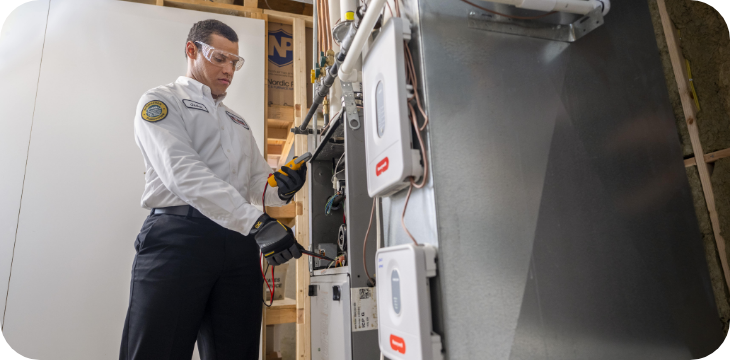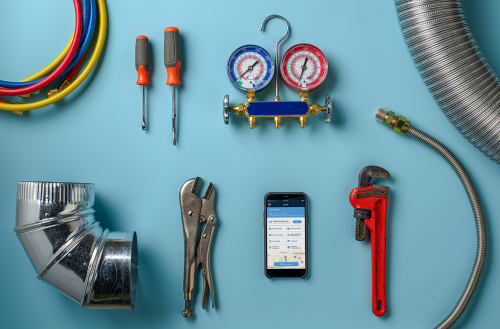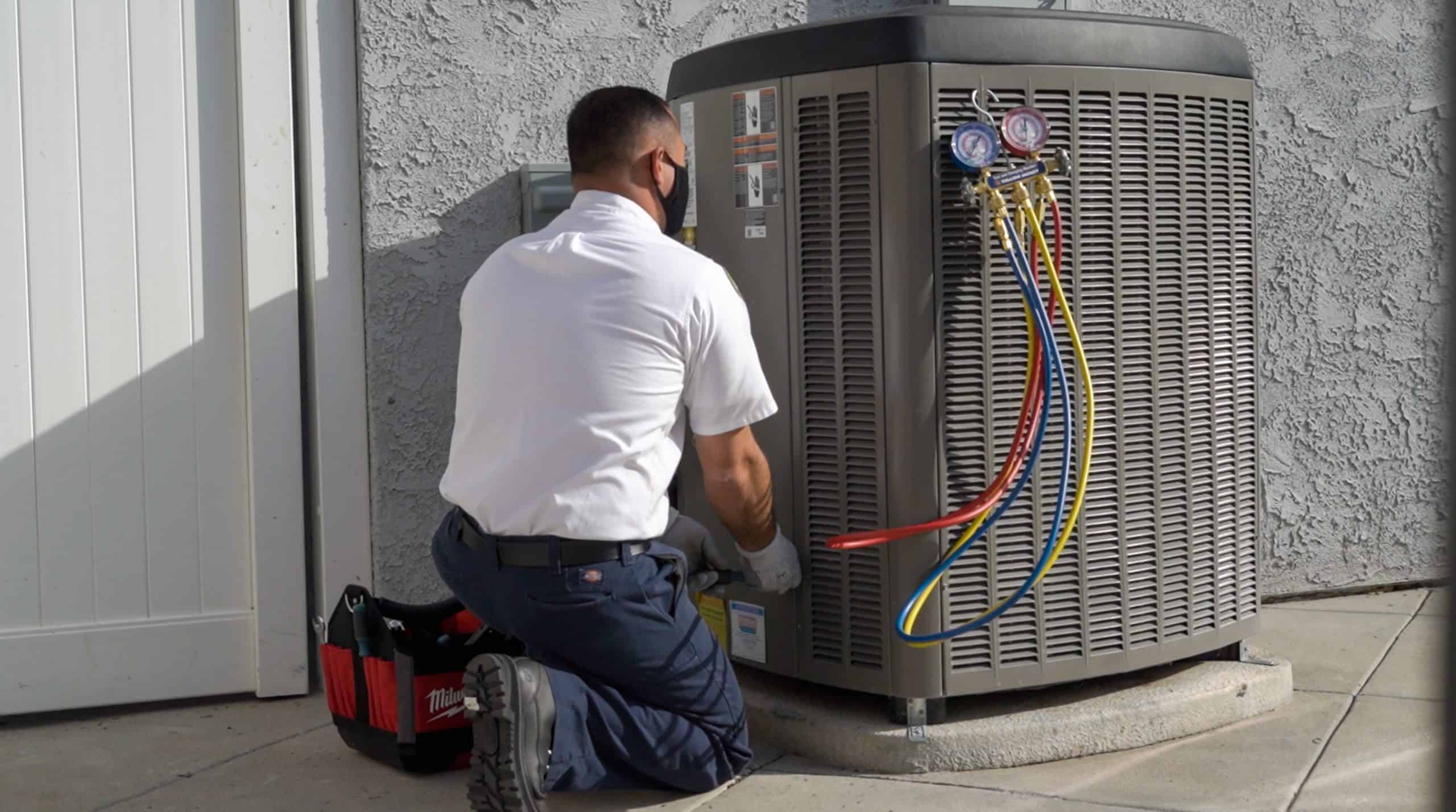Energy-Efficient HVAC Solutions to Conserve on Energy Costs
As energy expenses continue to rise, the significance of energy-efficient Cooling and heating systems comes to be increasingly noticeable. These systems not only promise considerable savings on energy costs however also add to a more sustainable future by reducing energy intake.
Benefits of Energy-Efficient HVAC Solutions
Energy-efficient Heating and cooling systems supply numerous advantages that prolong beyond plain cost savings. By taking in much less power, these systems add to decrease greenhouse gas discharges, helping to combat environment modification and promote sustainability.
Furthermore, energy-efficient cooling and heating systems typically provide improved comfort levels. Numerous of these systems feature advanced technology that enables for much better temperature control and improved air top quality (DMAKS HVAC). This leads to a much healthier interior setting, which is specifically essential for people with allergic reactions or breathing problems
Additionally, buying energy-efficient HVAC systems can enhance residential property worth. As even more consumers prioritize energy efficiency, homes and structures outfitted with these systems might attract greater proposals in the property market.
Kinds Of Energy-Efficient HVAC Options
How can homeowners and organizations pick the most ideal energy-efficient cooling and heating choices for their needs? The marketplace uses a selection of energy-efficient HVAC systems, each made to improve comfort while decreasing power intake.
One choice is the variable refrigerant circulation (VRF) system, which effectively manages the temperature in multiple areas within a building. This system adjusts its cooling agent flow to match the desired temperature level, resulting in substantial energy financial savings.
Another preferred option is geothermal warm pumps, which make use of the planet's stable temperature level to heat and amazing areas. By transferring warmth to and from the ground, these systems demonstrate remarkable efficiency, especially in moderate climates.
In addition, ductless mini-split systems supply an energy-efficient option for homes doing not have ductwork. These systems permit for zone-specific heating & cooling, reducing power waste in unoccupied locations.
Lastly, high-efficiency heating systems and ac system, with advanced SEER and AFUE scores, supply reputable environment control while eating less power than conventional designs. By evaluating these alternatives, house owners and organizations can select a cooling and heating system tailored to their particular requirements and power efficiency goals.
Secret Functions to Think About

Following, explore the type of compressor utilized in the system. this page DMAKS HVAC. Variable-speed compressors can adjust their outcome to match the home heating or cooling demand, causing enhanced comfort and power cost savings compared to single-speed models. Additionally, seek systems furnished with clever thermostats that offer programmable setups and remote access, enabling far better control over power usage
Another essential function is the system's air filtering capability. High-efficiency filters can improve interior air high quality and lower power consumption by guaranteeing the system operates efficiently. Moreover, consider the kind of refrigerant used; modern systems typically employ environmentally friendly cooling agents that have a lower ecological impact.
Finally, make sure that the system works with zoning innovation, which allows for tailored temperature control in different locations of your home, boosting comfort while minimizing energy usage.
Tips for Picking the Right System


Following, think about energy efficiency ratings, particularly the Seasonal Power Effectiveness Ratio (SEER) for cooling down check these guys out systems and the Annual Fuel Usage Performance (AFUE) for furnace. Higher rankings show greater efficiency, which can bring about substantial financial savings on energy bills over time.
Additionally, examine the type of HVAC system that best suits your way of living and budget plan. Choices consist of air conditioning, ductless mini-splits, and warm pumps, each with its own set of benefits and downsides.
Do not forget the importance of correct installation and sizing; an inaccurately sized system can result in ineffectiveness and increased wear. Finally, talk to a specialist heating and cooling service provider to get expert suggestions tailored to your home's distinct needs. This detailed strategy will guarantee that you choose an energy-efficient HVAC system that satisfies your requirements and spending plan successfully.
Upkeep for Ideal Effectiveness
As soon as the appropriate heating and cooling system is in location, ongoing upkeep becomes vital to making certain optimal effectiveness and long life. A well-maintained system runs a lot more efficiently, causing reduced energy usage and decreased energy bills. Regular examinations and tune-ups need to be set up a minimum of twice a year-- as soon as before the air conditioning period and once prior to the home heating season.

Home owners should likewise be attentive about monitoring their HVAC system's efficiency. Uncommon noises, changing temperatures, or enhanced energy expenses can suggest underlying problems that need instant attention. By resolving these worries without delay, house owners can protect against costly repair services and prolong the lifespan of their systems.
Spending in an upkeep strategy with a qualified technician not just improves efficiency yet also supplies assurance, knowing that the system is operating at its ideal. DMAKS HVAC. Normal maintenance is therefore necessary for maintaining power efficiency and reducing overall functional reference prices
Final Thought
To conclude, energy-efficient HVAC systems provide a sensible remedy for decreasing utility expenses while improving comfort and air high quality. By including sophisticated technologies and alternatives such as geothermal heatpump and ductless mini-splits, homeowner can attain substantial energy financial savings and contribute to environmental sustainability. Cautious factor to consider of system features and recurring upkeep better makes certain optimum efficiency, making energy-efficient systems a sensible investment for both economic and environmental benefits.